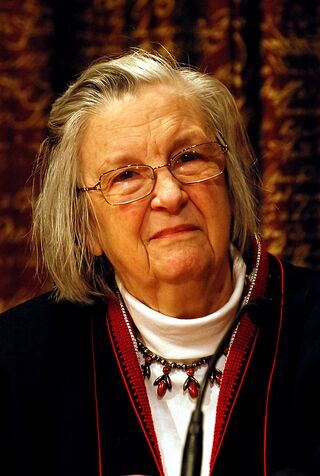Teamwork
Ordinary People Are Capable of More: Nobelist Lin Ostrom
Many local problems are best solved locally.
Posted June 2, 2022 Reviewed by Lybi Ma
Key points
- This month marks the 10th anniversary of the death of the first woman to win the Nobel Prize in Economics.
- Lin Ostrom confronted sexism at multiple stages in her career.
- Her research findings shattered common assumptions about the need for centralized authorities.
This month marks the 10th anniversary of the death of Elinor Ostrom, the first woman to win the Nobel Prize in Economics. Although she trained as a political scientist, her story offers deep psychological insights, first on what it takes to persist in the face of sexism, and second on the power of diverse local groups to solve problems that were long thought to require the intervention of centralized authorities.
Ostrom grew up in a single-parent, poor family. Her mother told her she did not need to go to college. Yet she graduated with honors from UCLA. Discouraged from studying mathematics because she was a woman, she was denied admission to UCLA’s graduate economics program because she lacked the requisite math. She took her Ph.D. in political science. When she and her husband, fellow political scientist Vincent Ostrom, took a job at Indiana University, she found a job only by agreeing to teach an evening introductory course eschewed by the rest of the faculty.
The Problem of the Commons
Ostrom is best known for her work on the problem of the commons. For centuries, many theorists had assumed that, for any common resource, such as grazing land or fishing stock, self-interest would lead people to overgraze and overfish it, ruining it for everyone. The only way to prevent the overutilization and destruction of such a resource, the thinking went, would be for some centralized authority to impose limits on use and punish those who do not abide by them.
Ostrom showed that this is not necessarily the case. For one thing, centralized solutions often work poorly, partly because those imposing them typically have little local knowledge or skin in the game. By contrast, when locals—whether in Nigeria, Indonesia, or Los Angeles—come together to solve such problems, they often succeed quite well, at least when certain conditions are met. For example, those involved need to be able to learn from their experience and modify rules accordingly.
Polycentricity
Ostrom and her husband advanced the idea of polycentricity. As opposed to policies imposed by a centralized, monolithic organization, polycentric solutions could allow small and intermediate-sized organizations to tailor solutions to the needs of individual communities while also capitalizing on some of the advantages of larger organizations, such as economies of scale. The question for Ostrom was not what does my theory say should or shouldn’t work, but what actually works in practice?

This philosophy was embodied by the organization the Ostroms founded at Indiana University— not a department, school, or institute, but a workshop, known as the Workshop in Political Theory and Policy Analysis. The workshop was devoted not to advancing any individual discipline or theoretical perspective but to understanding what is actually happening in the real world, using resources from as many different disciplines as necessary.
Ostrom was an empiricist, more of an Aristotelian than a Platonist. When a question was posed, her approach was to go look and see what communities were actually doing, which included talking with the people faced with a particular problem. Against the view that nothing is real except what our theoretical net catches, Ostrom believed that reality itself should be the criterion. For example, she held that any approach to resource management that works in practice can work in theory.
Look and Listen
One-size-fits-all approaches are unlikely to work, she found, because human communities are so diverse. Those who want to help are best advised to enter, not issuing orders, but listening, to find out what the local circumstances happen to be, and to look, wherever possible, to draw local people into designing, implementing, and revising solutions. Top-down approaches do not always fail, but a more bottom-up approach is far likelier to best serve a community’s needs.
For such local approaches to work, people need to know one another well enough to build mutual trust. What is possible for neighbors is very different from what is possible for strangers. And herein lies a challenge. As pandemics, technology, and new ways of working and living introduce a greater distance between those who live in the same cities, towns, and neighborhoods, we run the risk of stunting the development of thriving communities and human beings.


